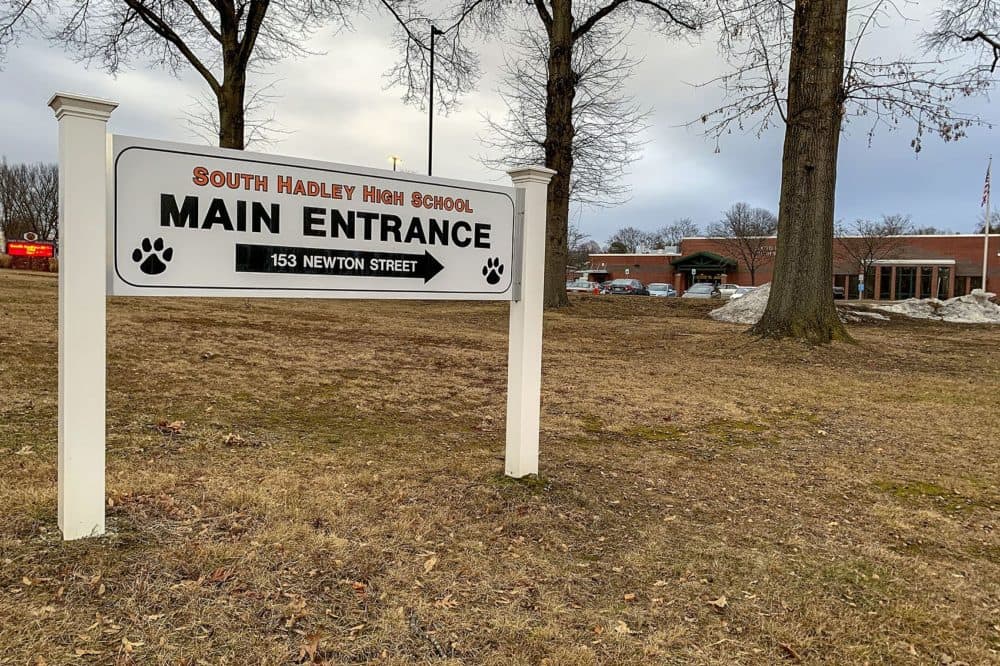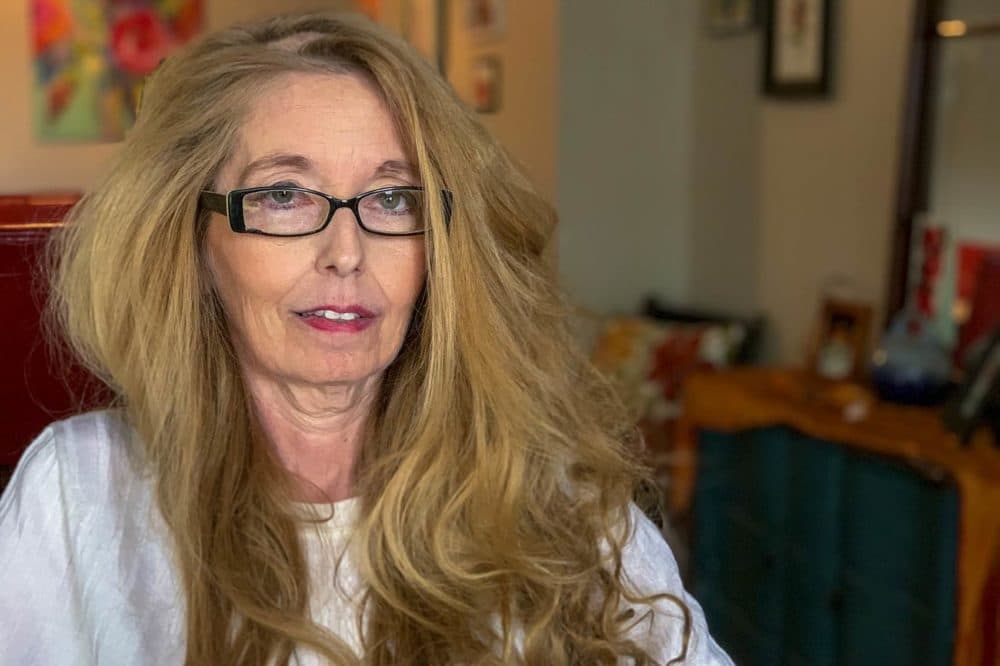Advertisement
How Mass. Schools Have Addressed Bullying In The 10 Years Since Phoebe Prince's Death
Resume
Tuesday marks 10 years since South Hadley High School freshman Phoebe Prince died by suicide after enduring months of relentless taunting and severe bullying. The news made national and international headlines. And at school districts across Massachusetts, Prince's death became a catalyst for change.
What's Changed At South Hadley High
Phoebe Prince’s former Latin teacher, Deb Caldieri, said she still mourns the loss of her student. Caldieri was close to Prince and described herself as a mentor. When the school year started in September of 2009, she said Prince was bright and bubbly.
"Phoebe, the very first day, came bouncing into my classroom ... and said, 'so when are we going to learn Latin?' " Caldieri recalled.
But by November Caldieri realized that Prince had been facing severe bullying by a group of classmates.
"And I started noticing her light going out," she said.

Caldieri reported the issue as soon as she found out. But she said school administrators didn’t appear to take serious action. Prince’s mom, Anne O’Brien, also flagged what was happening to her daughter.
"It was very painful, because you realize as a parent that no matter what I did — no matter how many times I called the school, no matter how many people I might have spoken to there — that she didn’t stand a chance there," O'Brien told CNN in 2011.
After Prince's death, O'Brien eventually reached a $225,000 settlement with the town of South Hadley in exchange for agreeing not to sue the school district over accusations officials ignored the bullying.
Current and former South Hadley school district officials declined to comment directly about O’Brien’s accusations for this story. In a written statement, interim Superintendent Diana Bonneville said the district has been working diligently "to work past this tragedy." She added the district “stresses a climate of respect, kindness and acceptance” and has introduced "restorative practices" to their bullying response.
Current South Hadley High student Maxim Furdman-Hayden, 17, said today, he doesn’t see extreme bullying among his classmates.
"There's a lot of fighting. I think, like, with less mature younger kids. ... But like mostly, no repeated offense[s]. There aren't kids who are bullied more. It’s a lot healthier," he said.
On his walk home, Furdman-Hayden added that there are anti-bullying posters on campus, and the school holds regular assemblies about how to prevent and report bullying. Other students who did not go on the record said they had experienced bullying at the high school, but that once they reported it, the problems stopped.

But it was more than just local school policy that changed after news of Prince’s death made headlines. Elizabeth Englander, director of the Massachusetts Aggression Reduction Center at Bridgewater State University, described it as a "watershed moment."
And it wasn’t just Phoebe’s death that captured national attention. Just nine months before, 11-year-old Carl Walker Hoover from nearby Springfield also died by suicide after being bullied in school.
"The cumulative effect of these two suicides really woke people up to the seriousness of this issue," Englander said.
This new attitude was demonstrated when the six students who bullied Prince were charged with criminal offenses — an unusually aggressive response at the time.
Lawmakers took things one step further, too, by passing an anti-bullying bill. While the state was one of the last to enact an anti-bullying law, Englander said the policy was one of the most progressive. It banned bullying on school grounds and required annual training for students and staff, among other things.
"It really was at the forefront of the nation at that time," Englander said.
In 2014, lawmakers added a data collection requirement to the regulations. Since then, state figures show that substantiated individual reports have dropped by 14% to 1,935.
But critics question the accuracy of these numbers, arguing the state isn’t doing enough to ensure that schools are tracking and reporting bullying.
Still, experts like Englander argue, policies like this have increased awareness and education about the issue, which is at least a step in the right direction.
Resources: You can reach the National Suicide Prevention Lifeline at 1-800-273-TALK (8255) and the Samaritans Statewide Hotline at 1-877-870-HOPE (4673). The National Domestic Violence Hotline can be reached at 1-800-799-SAFE (7233).
This segment aired on January 13, 2020.
